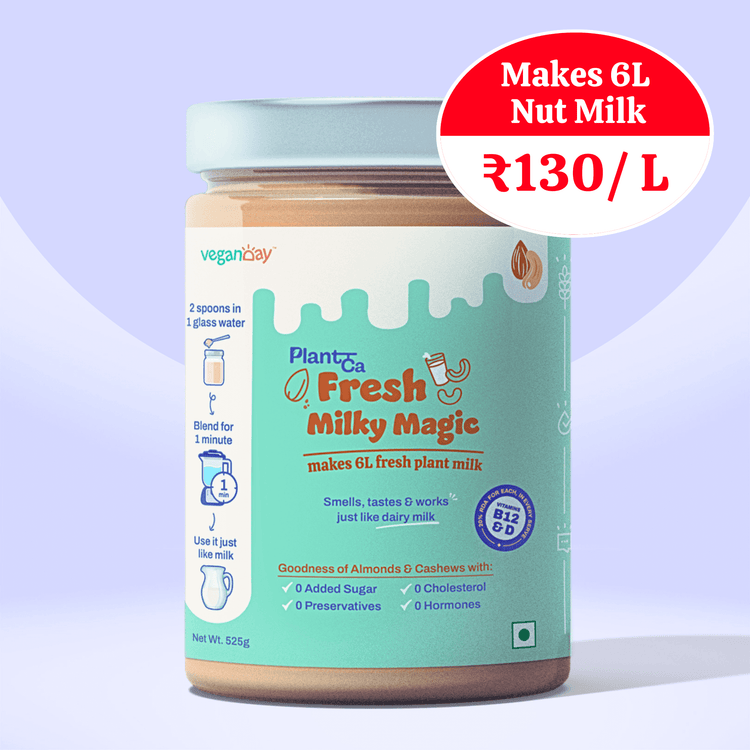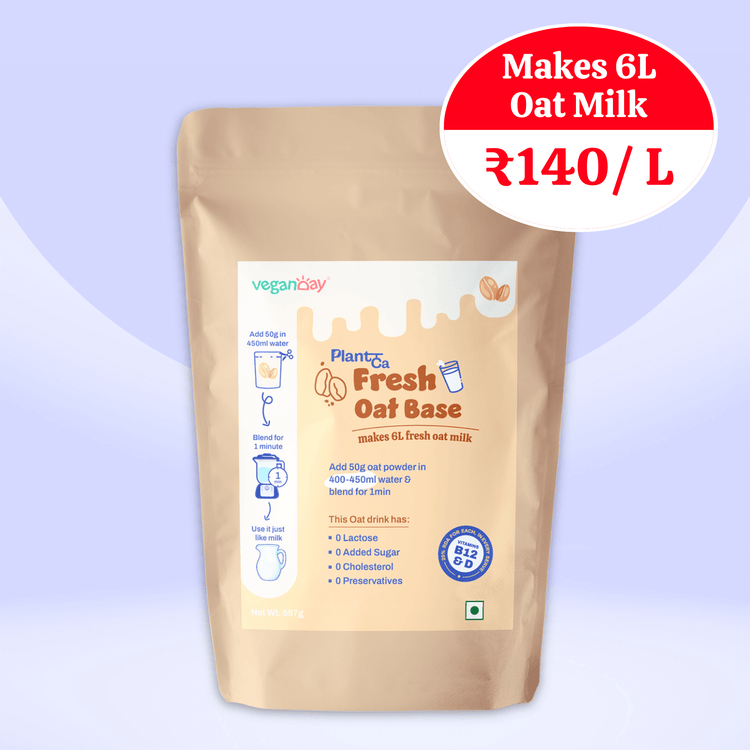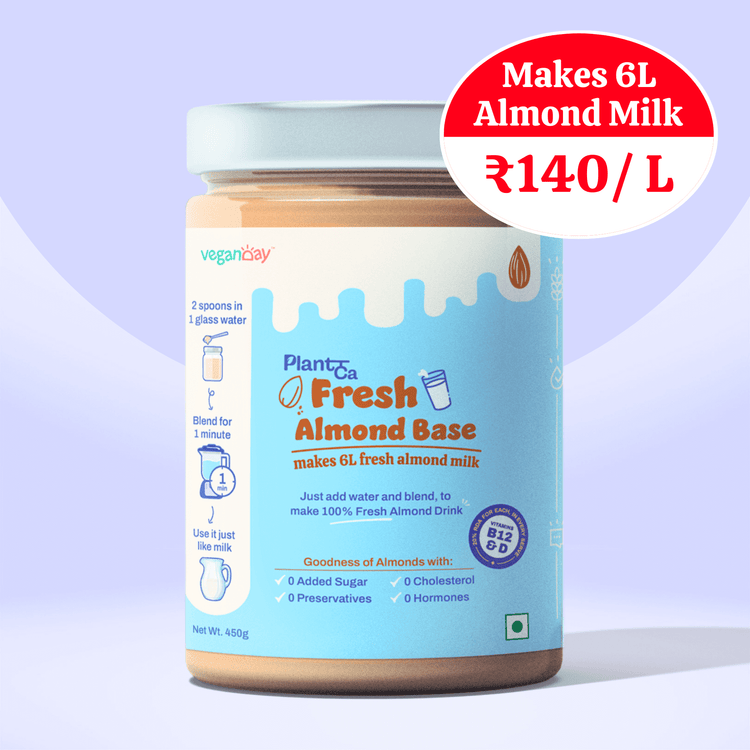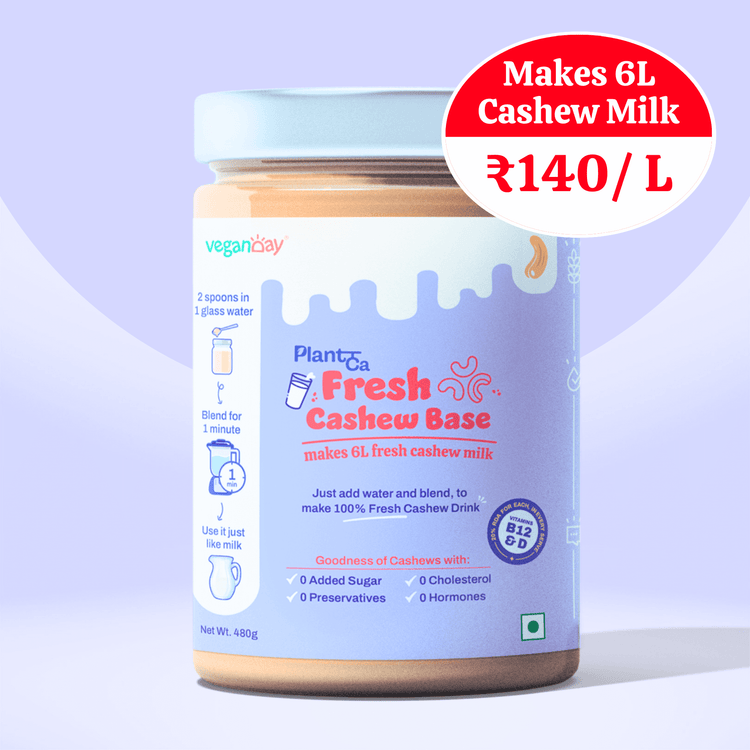In recent years, there's been a significant shift in the Indian healthcare landscape, with many health professionals advocating for plant-based diets. This movement stems from a growing body of evidence highlighting the myriad health benefits associated with plant-centric eating patterns.
Notably, prominent figures like Dr. Palaniappan Manickam and Dr. Nandita Shah has been at the forefront, promoting the advantages of plant-based nutrition, globally.
The Rise of Plant-Based Food in India
India, traditionally known for its rich tapestry of vegetarian cuisine, is witnessing a resurgence in plant-based eating, but with a modern twist. The emphasis is now on whole, unprocessed plant foods that not only cater to ethical and environmental concerns but also address health issues. The Sattvic diet, rooted in Ayurvedic principles, is gaining popularity. This diet emphasizes fresh produce, nuts, legumes and seeds, aiming to promote mental clarity and physical health.
Integration into Healthcare System
The Indian healthcare system is gradually incorporating plant-based dietary recommendations into preventive and therapeutic strategies. Hospitals and clinics are organizing workshops and seminars to educate patients about the benefits of plant-based diets in managing chronic diseases like diabetes, hypertension, and heart disease. This proactive approach underscores a paradigm shift from solely treating diseases to emphasizing prevention through lifestyle modifications.
Far-reaching Health Benefits
Adopting a well-planned plant-based diet offers numerous health benefits:
- Cardiovascular Health: Rich in fiber, antioxidants, and healthy fats, plant-based diets can reduce cholesterol levels and lower the risk of heart disease.
- Weight Management: High in fiber and low in saturated fats, these diets promote satiety and aid in maintaining a healthy weight.
- Blood Sugar Control: Whole grains, legumes, and vegetables have a low glycemic index, helping in better blood sugar regulation.
- Digestive Health: Abundant dietary fiber from fruits, vegetables, legumes, and whole grains supports gut health by promoting regular bowel movements and nurturing a diverse gut microbiome.
- Hormonal Balance: Fiber and phytoestrogens (like those in soy) can support hormone regulation, which is particularly beneficial for women during menstrual cycles, pregnancy, and menopause.
-
Reduced Inflammation: A diet focused on whole plant foods is naturally anti-inflammatory, helping to manage conditions like arthritis, autoimmune disorders, and even chronic fatigue.
Chronic Disease Reversal
Numerous individuals have experienced remarkable health improvements after transitioning to plant-based diets. For instance, many have reported better management of diabetes and hypertension, attributing their success to dietary changes. These personal accounts, coupled with clinical observations, have fueled the momentum towards embracing plant-based nutrition.
["The food you eat can be either the safest and most powerful form of medicine or the slowest form of poison." - Ann Wigmore, holistic health practitioner ]
Guidelines for a Balanced Plant-Based Diet
To ensure nutritional adequacy while following a plant-based diet, you should consider the following guidelines:
-
Diverse Food Choices: Incorporate a variety of fruits, vegetables, whole grains, legumes, nuts, and seeds to meet essential nutrient requirements.
-
Protein Sources: Opt for legumes, lentils, chickpeas, plant-based milk and its products to fulfill protein needs.
-
Vitamin B12: Since B12 is primarily found in animal products, consider fortified foods or supplements.
-
Iron and Calcium: Include leafy greens, fortified plant milks, and nuts to ensure adequate intake.
-
Omega-3 Fatty Acids: Flaxseeds, chia seeds, and walnuts are excellent plant-based sources.
Solving for Taste & Price
Turning plant-based/ vegan is Good to hear but acceptance for taste is a major challenge. We at VeganDay have solved for it, our PlantCa milk bases are completely plant-based, tasty, compact, affordable, nutritious and versatile– suitable for various culinary applications.
Check out our products: https://veganday.in/
Conclusion
The advocacy for plant-based diets by health professionals in India is rooted in a commitment to promote holistic well-being. By embracing plant-based nutrition, individuals can experience improved health outcomes and contribute to sustainable food practices. As more success stories emerge and awareness grows, the shift towards plant-based diets is poised to become a cornerstone of preventive healthcare in India.






